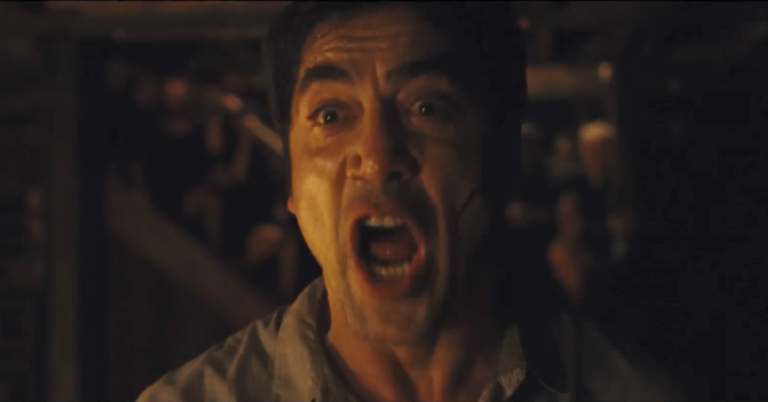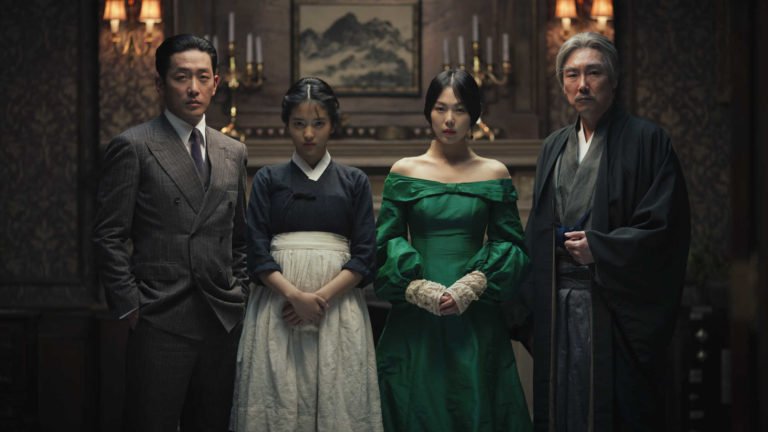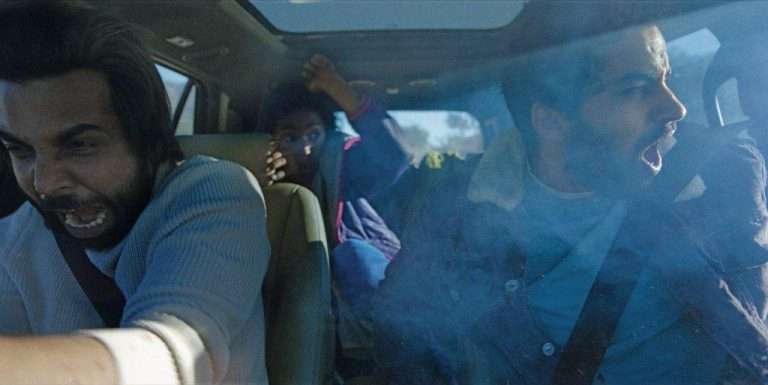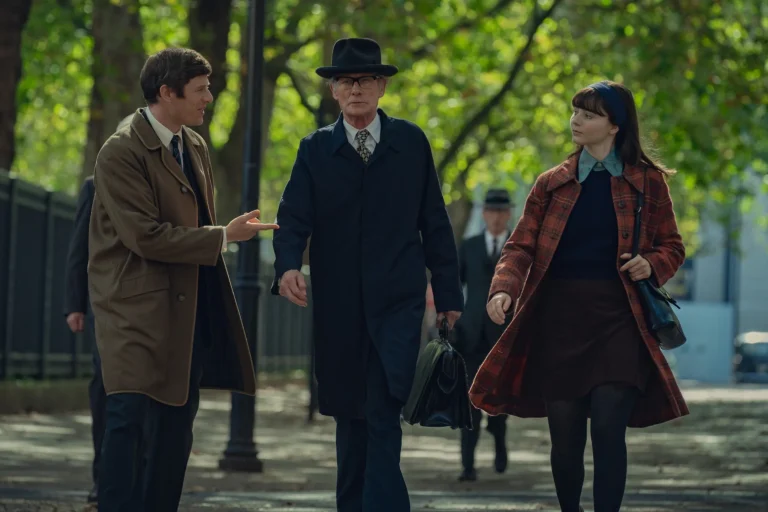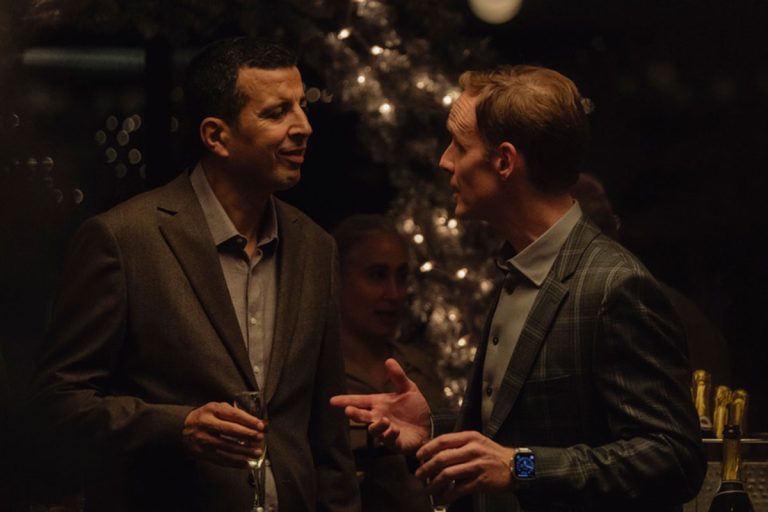It never fails to be in the spotlight. The International Criminal Court (in The Hague, Netherlands) was founded in July 1998 by 120 countries (via its Rome Statute) to combat war crimes, genocides, and wars of aggression; recent news headlines traveled the world when the new US president imposed sanctions against the members of the ICC (they cannot travel to the US, etc.), an institution the country he presides over does not recognize. As the diligently made documentary “War and Justice” (2024) by Marcus Vetter & Michele Gentile makes evident, the recent sanctions against ICC are not a novel phenomenon (we witnessed similar US behavior back in 2020). It reveals the more significant paradox of an international institution that can sentence nation leaders to jail, but only if their nation agrees to such procedure beforehand – at least for wars of aggression crimes.
“War and Justice,” a documentary in which its participants pledge firmly for justice as a means to deter war, follows the former (and first) ICC prosecutor, the Argentinian Luis Moreno Ocampo (tenure: 2003-2012), over 15 years. The film is dedicated to Ben Ferencz (1920-2023), the youngest prosecutor at the Nuremberg trials against the Nazis, and staunch supporter of a permanent institution to punish war crimes, who also appears briefly (and jovially) in the film. Ocampo, a seasoned lawyer who was instrumental (Deputy Prosecutor) in the Argentinian 1985 Trial of the Juntas, is here a passionate, optimist, and at times resigned official, but never despaired or depressed. He even tries to explain to his taxi driver why the ICC only prosecutes African states and not the big countries. Again, jurisdiction is the key here.

The film spends some time in the actual (public) proceedings of Congo’s Thomas Lubanga Dyilo (his trial began in 2009 and ended in 2012 who was accused of enlisting children as soldiers for his army (and was convicted). The whole environment has nothing of the solemnity of the ICC’s title. Everything in the court seems to be law business as usual, and “War and Justice” is at its best when it sticks to the minute details and presents the challenges officials face every day. Junior ICC lawyers who get frustrated by the sheer number of attacks against them, the staff inconsistencies in presenting the official iCC position in court give a more humane face to an institution accused of Eurocentrism (by the African countries), yet whose jurisdiction is still limited.
This uncertainty explains the Israeli and the Palestinian court involvement. This is another case that pre-dated the film’s beginning and continues after its release; the arrest warrants for the Hamas leader and the Israeli prime minister were issued in November 2024, after a long period of investigation. Ocampo in “War and Justice” was first approached by the Palestinian investigation in 2009, when Palestine had not even secured a UN observant member status. He is perplexed by the situation and undeniably undecided on what the preferred ICC stance would be when an investigation is required for alleged war crimes. The Palestine stance proved to reveal an ambivalence between what is morally right and what is legally/institutionally permissible. (For war crimes in particular, the ICC only needs the approval of the wronged state to start investigating; for the record, Israel is not an ICC member).
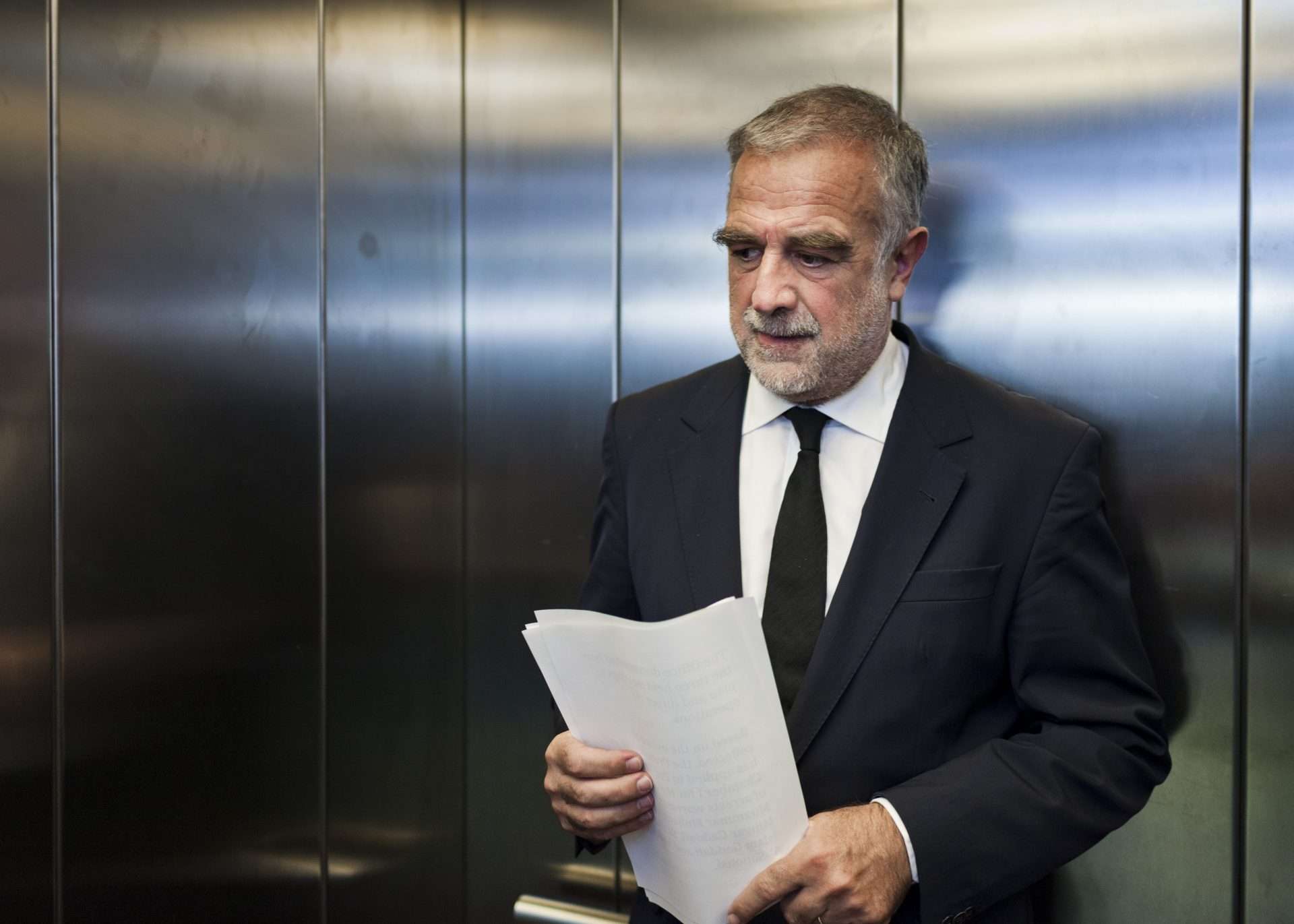
The focus on Ocampo sometimes clouds the continuity of the ICC’s subsequent role and chiefs: Fatou Bansouda (2012-2021) and current ICC prosecutor Karim Khan (2021-present). Khan has one of the film’s most piercing lines, stating that nation-states conceive international law as an a la carte menu, and decide to appeal to it only when it suits them. The film spends some time trying to answer the question: are the ICC’s shortcomings a result of its limited jurisdiction (the US and Russia are still outside of the picture), or is the whole edifice (envisioned by Ben Ferencz many years before its institution) shaky? It goes for the first answer, siding with Ocampo’s dictum, “When you are facing power, power returns bullets, but you have to keep doing your thing.” We mostly concur, but we still have to make a leap of faith here (rather than being utterly convinced).
Ultimately, “War and Justice” feels honest and (guarded) passionate about its subject matter: a significant international institution under fire and still unknown to the general public. It brings us to witness its back chambers, where we see less bureaucracy than expected and more concern for its mandate to succeed. It is telling and edifying.

![Good Night Good Morning [2010]](https://79468c92.delivery.rocketcdn.me/wp-content/uploads/2016/10/Good-night-good-morning.jpg)
